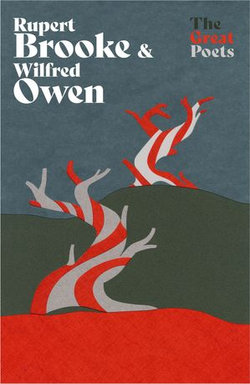If I should die, think only this of me:
That there's some corner of a foreign field
That is for ever England.
From The Soldier to Anthem for Doomed Youth Rupert Brooke and Wilfred Owen are two of the best-loved poets from the heroic lost generation of the First World War. Brooke's work was well-known before the war, with the now iconic lines:
'Stands the Church clock at ten to three?
And is there honey still for tea?'
from The Old Vicarage, Grantchester. And Wilfred Owen, awarded the Military Cross, had been writing poetry since he was ten years old.
This superb collection is the perfect introduction to two of our greatest poets.



Share This eBook: